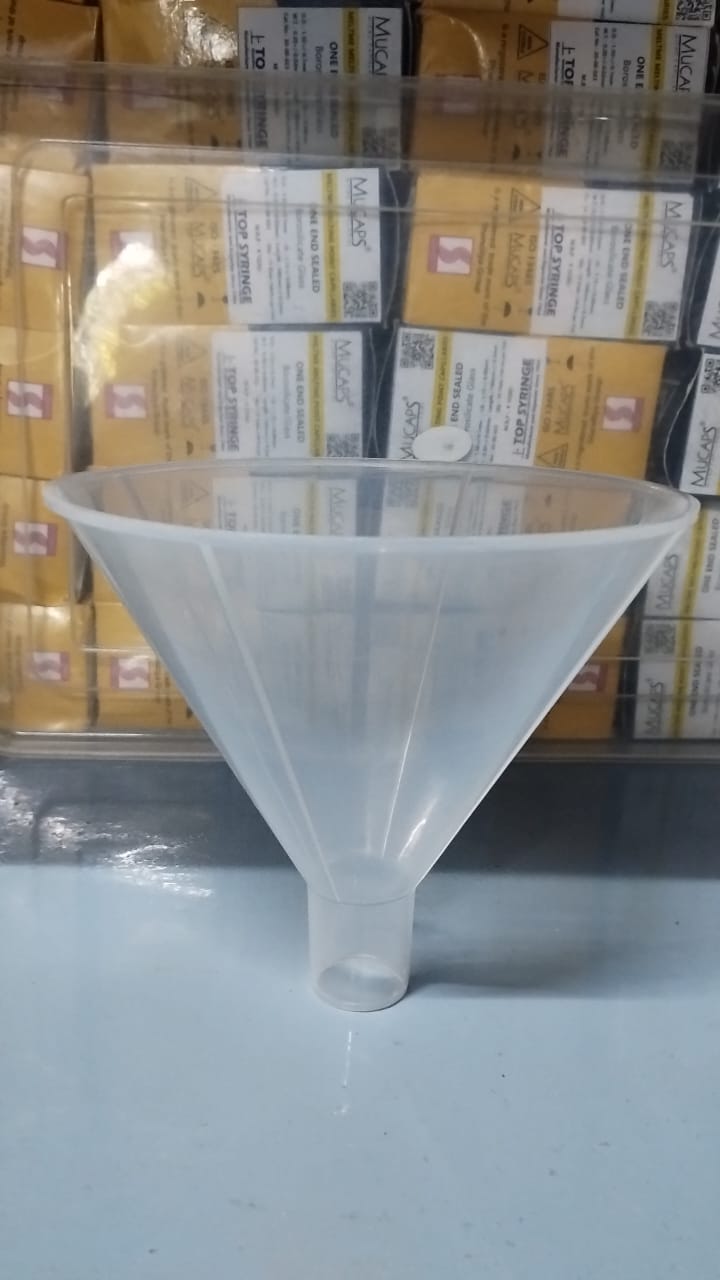About Plastic Funnel
A plastic funnel is a laboratory tool used for transferring liquids or fine powders into containers with narrow openings. It is a versatile, durable, and cost-effective option for various tasks. Here's an overview:
Key Features:
-
Material:
- Made from plastics such as polypropylene (PP), polyethylene (PE), or polyvinyl chloride (PVC).
- These materials are lightweight, shatter-resistant, and chemically resistant to a wide range of liquids and substances.
-
Design:
- Wide Mouth: For easy pouring of liquids or powders.
- Narrow Stem: Helps direct the flow into small openings or containers with precision.
- Variety of Sizes: Plastic funnels come in various diameters to suit different container sizes, from small (for pipette transfers) to large (for bulk liquid handling).
-
Heat Resistance:
- Some plastic funnels are designed to withstand moderate temperatures, but they are generally not as heat-resistant as glass funnels.
-
Graduations:
- Some funnels may have volume markings for measuring liquids during transfer.
Applications:
-
Liquid Transfer:
- Used for pouring liquids into bottles, flasks, or beakers with narrow necks to avoid spillage.
-
Powder Handling:
- Suitable for transferring fine powders or granules into containers.
-
Filtering:
- In some cases, plastic funnels are used with filter paper to separate solids from liquids, though Buchner funnels are more commonly used for filtration.
-
Filling Containers:
- Common in both laboratory and industrial settings for accurately filling bottles, jars, or tubes with liquids.

